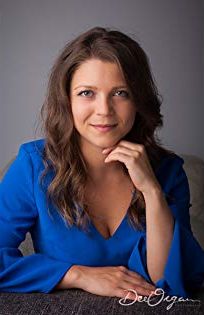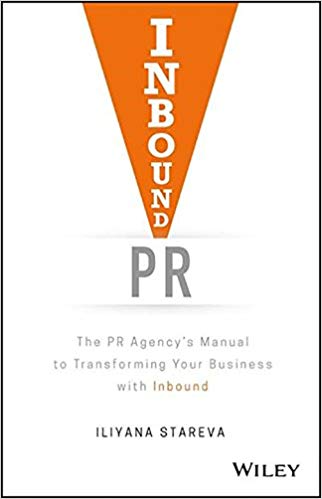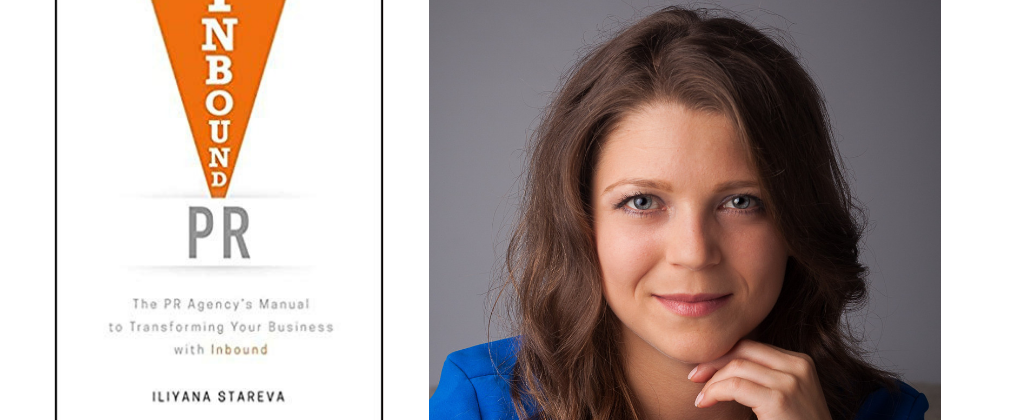Author of Inbound PR Offers Insights on Writing
 Iliyana Stareva, global partner program manager at HubSpot, had developed the concept of applying the principals of inbound marketing to public relations. She had written several pieces on the idea and was giving talks about it, but felt more was needed. At the urging of colleagues and mentors, she contemplated writing a book. It was not an easy task given her other responsibilities, and it took months to get the project moving. But, she persevered and recently released Inbound PR, a handbook to transform an agency’s business. Here, she talks about the writing process and how to stay motivated.
Iliyana Stareva, global partner program manager at HubSpot, had developed the concept of applying the principals of inbound marketing to public relations. She had written several pieces on the idea and was giving talks about it, but felt more was needed. At the urging of colleagues and mentors, she contemplated writing a book. It was not an easy task given her other responsibilities, and it took months to get the project moving. But, she persevered and recently released Inbound PR, a handbook to transform an agency’s business. Here, she talks about the writing process and how to stay motivated.
What inspired you to write Inbound PR?
I knew back in college that I wanted to write a book. I didn’t know about what exactly, I just knew I wanted to be an author.
Eight years later, I was blogging and speaking about this connection I had seen between public relations and inbound marketing. People were asking about what we could do to take the concept to the next level and Stephen Waddington, the Chief Engagement Officer of Ketchum said, “You have to write a book about it.”
I thought “Let’s just do it.”
You mentioned that you had been thinking about it for some time – what pushed you over the edge to finally do it?
People around me urging me to try it. I got that positive feedback around the concept of applying Inbound to PR and that gave me an indication that others would be interested. It’s something that I am very passionate about, but it has to have that market fit, fill a gap. Writing a book is a daunting challenge and it takes a lot of energy. If there’s no interest, you’re not going to feel good about all the effort.
What do you hope to accomplish with the book?
Reinvent an industry that’s starting to feel outdated. I want PR to be fit for the future and get that seat at the management table. But without the use of data and critical thinking around proving ROI, that’s not going to happen. My book aims to change the way PR people think and do their work so that they always start with the outcomes in mind, not the outputs and consider the bigger business objectives.
What were the biggest challenges you faced in writing it?
The biggest challenge was actually sitting down to write it. When I decided to write the book, I was quite motivated for the first couple of months. I lined up the content and the chapters, so I knew what I wanted to write. And then I started to think 60,000 words, that’s a lot. I had a full-time job. It took me a year to find my way around and to figure out how to execute it.
What worked for me was to break it into a really small, doable habit. I stopped thinking about having to write 60,000 words. Instead, I told myself I would write every day between 6 and 7 a.m. I wake up early anyway, so I refocused that time on writing instead of doing my work emails. Because it was a small chunk of my day, it became a habit. It went very quickly. I started in January and by March, I was ready to pitch Wiley with a full manuscript.
You really need to know yourself and when during the day you are most productive.
How Do You Maintain Your Confidence?
People are naturally not confident and for me, that played a role in getting moving. When I would get stuck, I would think, “Do I really have something to say? And “Can I pull this off?” When I started asking those questions, I knew I needed to do more research. I also knew I just needed to keep moving and not get derailed and reminded myself of all the positive comments, tweets, emails that I’ve so far received on the topic.
What is your advice to someone thinking about writing a book?
Build your own brand online before you think about publishing anything. If you want to work with a publisher, the first thing they’re going to ask is, “’What is your plan to publicize the book?’, and then “What’s your reputation?’”
And, if you want to self-publish, you have to do everything on your own. If you don’t have an audience already, it’s going to be very difficult.
Find out more about Inbound PR at Iliyanstareva.com



